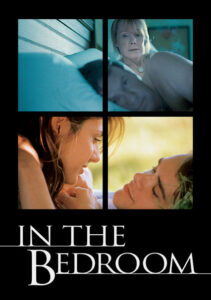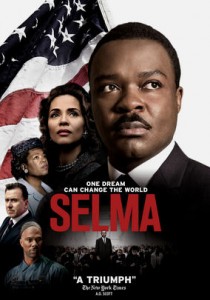In the Bedroom-2001
Director Todd Field
Starring Tom Wilkinson, Sissy Spacek, Marisa Tomei
Scott’s Review #1,313
Reviewed October 29, 2022
Grade: A
Todd Field is an American actor and director who has made very few films. This shows that he must choose his projects carefully.
Little Children (2006) is one of my favorite films.
Based on a 1979 short story called ‘Killings’ by Andre Debus, In the Bedroom (2001) is an independent project representing what independent films do brilliantly. They tell stories about real people, with emotions, conflict, choices to make, and repercussions to face.
The story depicted in In the Bedroom is one that anyone viewing the film can either directly relate to or sympathize with any number of characters within.
The film centers on the inner dynamics of a family in transition. Matt Fowler (Tom Wilkinson) is a successful small-town doctor practicing in Maine and married to Ruth Fowler (Spacek), a music teacher.
Their son Frank (Nick Stahl) is involved in a summertime love affair with an older single mother, Natalie Strout (Marisa Tomei). He professes it to be merely a fling but her violent ex-husband is jealous.
As the beauty of the summer comes to an end, these characters find themselves amid an unimaginable tragedy. They must make difficult choices to persevere through the dark autumn and winter.
Having seen the film when it was released in 2001 and not again until 2022 I wondered how it would hold up over twenty years later. Would it feel dusty and dated or fall into the ‘one and done category like many films do?
The story is just as riveting and this is because of superior acting by the entire cast and exceptional direction and pacing by Field.
The lurid, quiet landscape is still and lonely in most scenes and this is frightening unto itself. The lush and serene Maine water, lobsters, lighthouses, and cabins are fraught with danger because of the human threat lurking in its midst.
The atmosphere is everything.
Fields reveals a story about a small town and the secrets buried beneath the surface. Even during a summer barbeque, there is tension when an unwelcomed guest arrives unannounced. With glances between characters, there is a lot of unspoken communication.
The acting is top-notch, especially Wilkinson and Spacek. Before the tragedy, they both hedgingly accept their son’s relationship with an older woman but hope it’s only a phase. They see the relationship as a major roadblock to his education at a good university.
After the tragedy, Matt and Ruth change. She becomes angry and cold, he is stoic and vengeful. Both actors seamlessly portray their characters just like real-life people.
Other players like Marisa Tomei and Nick Stahl as the younger couple met with tragedy perform their roles flawlessly.
This is a major reason why In the Bedroom resonates so well. Any viewer can put themselves in the shoes of Matt, Ruth, or even Natalie Strout. Circumstances can change our perspectives and turn us into different people, at least temporarily.
The last sequence is great. A decision made by Matt and Ruth is shocking and will follow them for the rest of their lives. The key is that they do not hastily make this decision but rather calmly ponder and strategize each step.
They are satisfied and have no regrets.
In the Bedroom (2001) is an emotionally honest and compelling journey into the exploration of character. It is powerful and humanistic, draws the viewer in quietly, and takes a forceful grip. It uses silence to its advantage making that silence haunting and melancholy.
Oscar Nominations: Best Picture, Best Director-Todd Field, Best Actor-Tom Wilkinson, Best Actress-Sissy Spacek, Best Supporting Actress-Marisa Tomei, Best Adapted Screenplay
Independent Spirit Nominations: 3 wins-Best First Feature (won), Best Male Lead-Tom Wilkinson (won), Best Female Lead-Sissy Spacek (won), Best Screenplay


